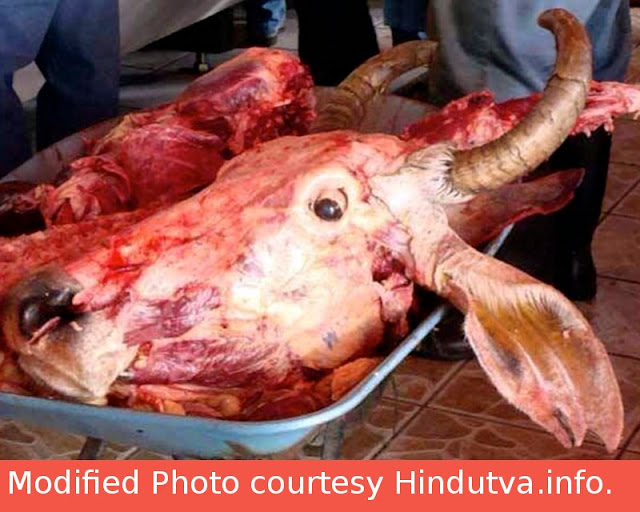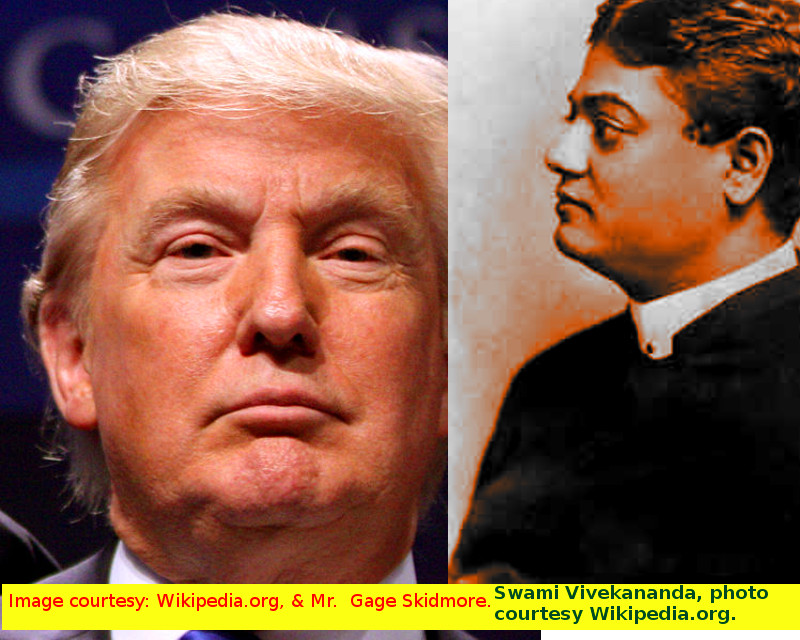077 Vowed to conquer gold but not alcohol कांचन वांछा को जीतने के लिये मेरे गुरू को वादा किये, शराब को जीतने के नहीं । కామినీ కాంచనాలను జయించటానికే మా గురుదేవుడికి వాగ్దానం, మద్యాన్ని జయించటానికి కాదు
The taboo sounds reasonable if we consider the principles of Raja Yoga and the Patanjali Yoga Sutras. Vivekananda also wrote a book titled "Raja Yoga", an English version and discussion of the Eight Fold Path.
The Raja Yoga primarily aims at control of mind (Yogaha chitta vritti Nirodhaha). A person who consumes alcohol, often loses control over his mind as long as it affects his medulla oblongata. An inebriated person cannot distinguish between what is good and bad. His speech becomes unstable and often irrelevant.
From 1887 (Death of Shri Ramakrishna) to 1889, letters written by Swami Vivekananda are not available. This may be the time he was living on Madhukara (alms collected by begging, the travails of which he narrated in his Pasadena, California speech). From 1890 to June 1893 Vivekananda was visiting native rulers like the ruler of Khetri, Divan of Junagadh, Mysore, Alwar etc. At this point of time it is not clear whether he shared any alcohol with the rulers.
From 1893 to 1897 (first visit to US and Europe) and 1899 to 1900 (Second visit to US and Europe), there are indications that he consumed alcohol.
His biographer Ms. Mary Louise Burke's account of his travel with Mr. Pal Deussen, noted German Sanskrit Scholar confirms this. Vivekananda was said to have sipped alcohol freely and disclosed to Mr. Deussen that his pledges were only against Kaamini (women) and Kaancana (gold and wealth).
HOW HIS WESTERN DEVOTEES AND FRIENDS VIEWED IT?
Male friends and devotees:
1. Mr. E.T. Sturdy, a Sanskrit scholar and co-publisher of Raja Yoga might not have appreciated it. He later parted ways with Vivekananda.
2. Mr. Francis Leggett. A Family Casino and resort owner and a shipping magnet in US. He provided accommodation to Vivekananda at Ridgely Manor for more than a month in 1899 where alcohol was served at meditation sessions. Mr. Leggett also provided good luxury accommodation to Vivekananda at Paris during his second visit. Mr. Leggett also served as President of the Vedanta Society, New York for some time.
3. Mr. Max Mueller. Noted Sanskrit scholar. The relations appear to be intially cordial and later cold.
Lady friends and devotees:
American women do not know about the traditional taboos on Hindu monks smoking tobacco, eating beef or consuming alcohol. As Vivekananda was very flexible in his habits, he became readily acceptable to them. Yet Ms. Henrietta Mueller (daughter of Mr. Max Mueller) who contributed substantially to the purchase of Belur Math land called everything bogus in a newspaper interview and shifted to theosophy.
Mrs. Ole Bull. Swami Vivekananda called her mother. She wrote to Lady Henry Somerset:
"... The fact that V. has smoked for years and has at lunches and dinners a few times tasted wine (not with men alone) with the impulsive combative nature of the man -- in large part his own fault as I tell him -- and in part the prejudice of creed and custom against any oriental not a converted Christian, have contributed to this prejudice which had reached me before I knew him ..."
ybrao a donkey's views
Mrs. Bull's letter shows her over-enchantment and obsession with Vivekananda, as she believed that he had miraculous powers. She could never understand the rigorous discipline which a true Hindu monk had to undergo while living as a monk. Vivekananda himself lectured many times on the stage about this rigorous discipline. He wanted that rigorous discipline to be enforced in the Belur Math and its associates both for monks and nuns. He could not enforce this for himself. For this reason only Ms. Henrietta Mueller and Mr. E.T. Sturdy doubted the genuineness of Vivekananda in Stage 2. In stage 1, like everybody else they were fascinated.
BLOGGER'S VIEW
A Danish Proverb: Uden mad og drikke duer helten ikke. = Without eating and drinking the hero is no good.



Comments